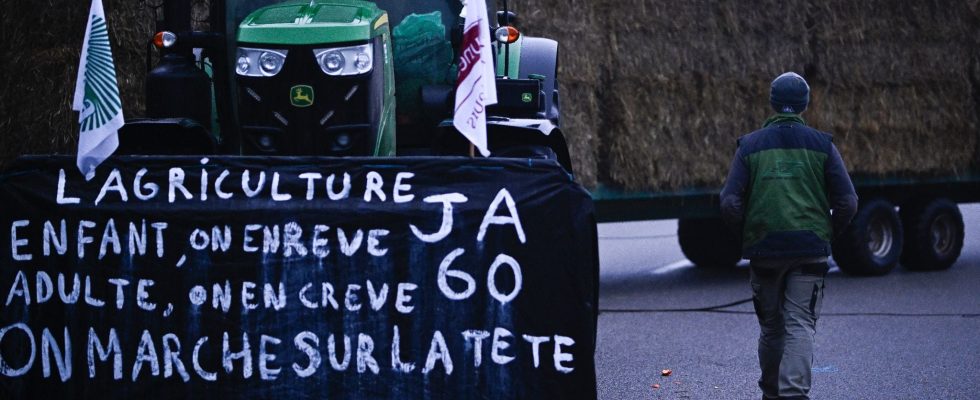Farmers begin their second week of mobilization this Thursday, January 25. A movement closely followed by the European press. The Belgian daily The evening (center left) observes in particular the “double standards” of the French government, according to him clearly more conciliatory with farmers than with environmentalists. “The current demonstrations by farmers clearly show that they are not subject to the same treatment as environmental activists, yellow vests or even youth,” he points out. Difference in treatment, leniency, which can be explained, for the Belgian daily, by the capital sympathy that farmers would benefit from among the population and the political class
Oppositions in unison behind the agricultural world?
The Italian daily Il giornale (right) shares the impression that the political class, and in particular the opposition, is committed to the cause of the farmers: “The communists are calling for the ‘convergence of struggles’. Lepenist Jordan Bardella, who campaigns for the Europeans and brandished the anti-Eurocracy standard, was immortalized while caressing a cow”, notes the transalpine newspaper.
“High taxes and charges, increase in the cost of energy of political origin, stifling bureaucracy”… So many objects of discontent, listed by the German daily Frankfurter Allgemeine Zeitung (conservative), on which the populists can make their juice. The objective? Expand their electorate, according to the newspaper: “We would still do well to take seriously the fear of “downgrading” which deeply affects the middle class, on this side of the Rhine as on the other”, points out the daily, in reference to the movement launched by German farmers at the beginning of January to protest against the removal of the tax advantage on agricultural diesel.
In Spain, the newspaper website El Diaro (left) notes in particular a similarity between the different mobilizations which have sprouted in Europe in recent weeks. In “Germany, the Netherlands, Poland, and Romania,” he says. And now in France. If the agricultural protest movement has spread across the four corners of Europe, it is partly due to “the free trade agreements negotiated by Brussels as being responsible for a situation of unfair competition with regard to products imported from Mercosur or Oceania countries”, concludes El Diaro based on the testimonies of demonstrators in the media.
From smallholder to agro-industrial: a movement that is sweeping an entire sector
As with our German neighbors, the French agricultural revolt does not come only from small farmers “ruined by mass distribution”, but also from “large farmers, whose agricultural businesses are modern and integrated into agri-food circuits”, notes the Swiss tabloid Blick. And to add: “It is therefore not only a question of a jacquerie of the base, but of a revolt of farmers-entrepreneurs who find themselves strangled by European regulations voted by the MEPs of the presidential party.”
Reason why “it would be better for there to be a dialogue” this Thursday, on the occasion of the launch by the European Commission of discussions “on the future of agriculture in Europe”, summarizes the British political magazine The Spectator (conservative). “If we are only treated to a monologue from Brussels urging European farmers to go green for the good of the planet, their anger will explode across the continent,” argues the newspaper. Without forgetting to remind us implicitly that the government of the new French Prime Minister, Gabriel Attal, who is preparing to present this Friday its measures supposed to meet the expectations of farmers, is here confronted with its first major crisis.
